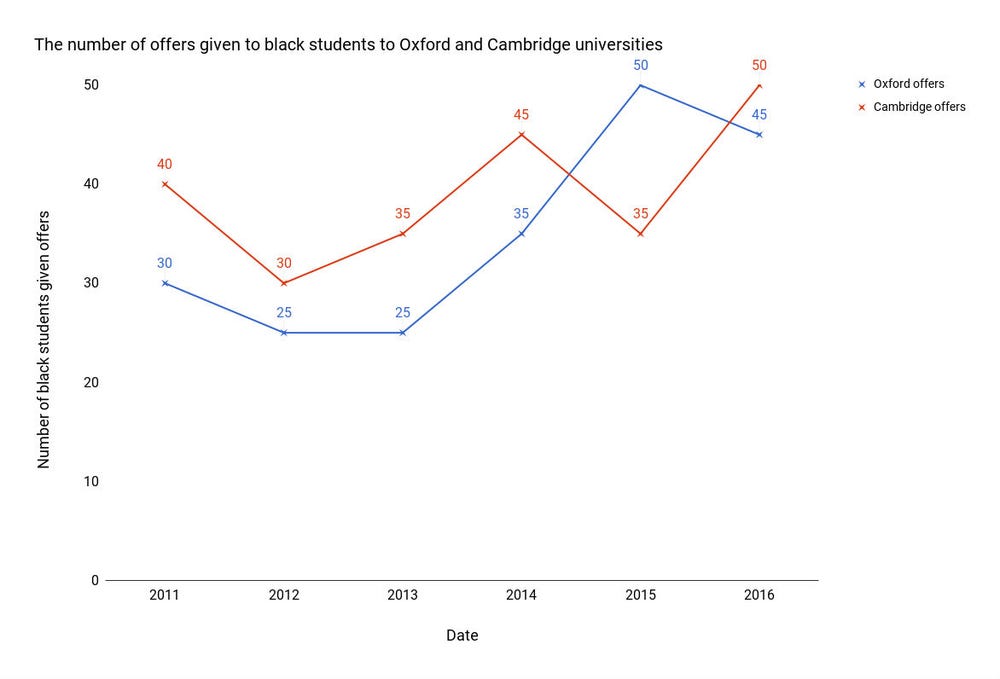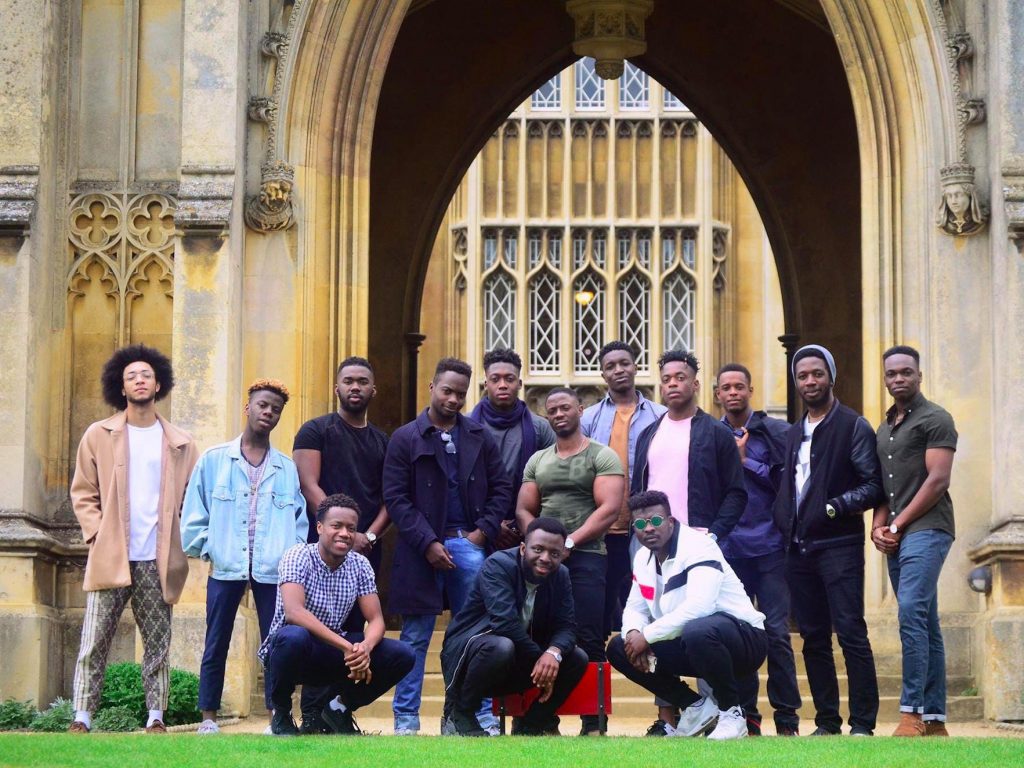By Olivia Bridge
When many of us think of the portmanteau ‘Oxbridge’, it often evokes images of upper-class white elitists, and rarely an ethnically diverse, multi-cultural institution that promotes equality and diversity. It is no secret that Oxford and Cambridge university are incredibly selective when offering places to prospective applicants. Although both universities are taking strides towards enhancing their inclusivity, statistics indicate that this is far from enough, and that people of colour are still being excluded from the opportunities and education that Oxbridge has to offer.
2017 was the first time in recent history that Oxford’s acceptance of black applicants closely matched the general population of black students in England and Wales. Yet despite this news, black applicants are still largely underrepresented at the universities; this year, just 16% of black applicants were accepted, compared to 26% of white students.
The think tank Fullfact discovered that between 2015 and 2017, white applicants were on average twice as likely to be accepted into Oxford than black applicants; during these years, white applicants had an acceptance rate of 24% whilst black applicants had a rate of just 12%. Although the university has expressed desires to diversify in recent years, the shocking correlation between being BAME and having a lower acceptance rate risks deterring people of colour from applying and creating an environment of hostility and intolerance for those from different ethnic backgrounds. Incidents of genuine racism are all too common. Timi Sotire, a student at Cambridge University, told Business Insider about having her afro ‘petted’ and being told that her hair would look better if it was straight.

Statistics have also discovered that although black applicants are more likely to apply for more ‘competitive’ degree courses such as medicine and law, they are less likely to be accepted than their white counterparts. For degrees in medicine in 2017, black applicants had an offer rate of 9% and 8% were admitted, compared to an offer rate of 22% and an acceptance rate of 20% for white students. Not only are these statistics damaging to the futures and aspirations of black applicants, they also risk creating a deficit of BAME (Black, Asian and Minority Ethnic) workers in these sectors. With the position of General Practitioners being recently added to the Shortage Occupation List (SOL), the exclusion of black applicants from medical degrees could only aggravate predicted staff shortages in future. Mono-ethnicity within higher education leads to mono-ethnicity in the workplace; individuals of all backgrounds need to be given the opportunity to succeed and flourish.
In 2018, the Sutton trust discovered that Oxford and Cambridge accept and recruit more students from eight predominantly private schools, than nearly 3000 state schools combined. Private schools however, are notoriously inaccessible for those without wealthy families and considering that statistically, BAME households are poorer than the average white household, people of colour are again disadvantaged when it comes to applying. A recent UN report discovered that BAME households are twice as likely to live in ‘persistent’ poverty than their white counterparts and additionally, it has been reported that by 2020, the poorest black and Asian families in the UK will be hit by a staggering 20% drop in living standards post-Brexit. The trials and tribulations faced by people of colour at these universities today, including their experiences outside of education, is having a notable impact on their academic achievements too. A 2018 report by the Social Market Foundation discovered that black students are 1.5% more likely to drop out of university than white and Asian students.

With Brexit and its impact imminent, our elite universities are set for even less diverse student bodies. The Higher Education Policy Institute have predicted that Brexit will cause the number of EU students in the UK to decrease by as much as 57%. This unsettling statistic is based on the fact that post-Brexit, EU students will need to pay the same rate of fees that international students do; this rise in cost will likely see many choose to study elsewhere to save money, especially applying for a Tier 4 Student Visa will become compulsory. The Financial Times reports that Cambridge University has already seen a drop of 14% in applications from EU students too. These predictions are bleak and more importantly, the lack of diversity and increase in mono-ethnicity that will result at Oxbridge is likely to deter future students from applying, and risks worsening the prejudice and discrimination that they already face here. Considering the increase in hate crime recorded in the UK since Brexit was announced, it is feared that as our exit from the EU draws closer, these statistics may climb even further.
The impacts of Brexit on the BAME community outside of the academic sphere will also prevent many from applying to Oxbridge. In 2018, the Intersecting Inequalities report discovered that BAME individuals are the most affected by ‘’cuts to public services and austerity changes to tax and benefits’’. With an increasing proportion of BAME families falling on financially testing times, many students living in poverty will continue to be excluded from the opportunities of Oxbridge. Whatever deal we do (or do not) leave the EU with risks exacerbating issues such as the benefit system, austerity and in-work poverty, which could all continue to disadvantage BAME applicants.
The institutions of Oxford and Cambridge, despite their reputations as renowned and elite universities, are far from perfect. There is a very clear, and unsettling, pattern between the two which seems to marginalise and isolate people of colour from accessing an education which should be inclusive and diverse. The stories of BAME students at Oxbridge only serve to cement this, their stories of experiencing racism and prejudice are unfortunately all too common and with factors such as Brexit and austerity thrown in to the mix, their plight risk worsening over time. Although the outcry from students and staff at both universities have helped to launch the treatment of BAME students in to the spotlight, the results are struggling to manifest into real and meaningful change. The opportunity must be taken sooner rather than later to act and include, support and welcome applicants from various ethnic backgrounds if Oxbridge is to shake off its reputation as an inaccessible institution.
Bethany Morris is a content writer for the Immigration Advice Service; an organisation of immigration solicitors which provides legal support for students from overseas looking to study in the UK.


